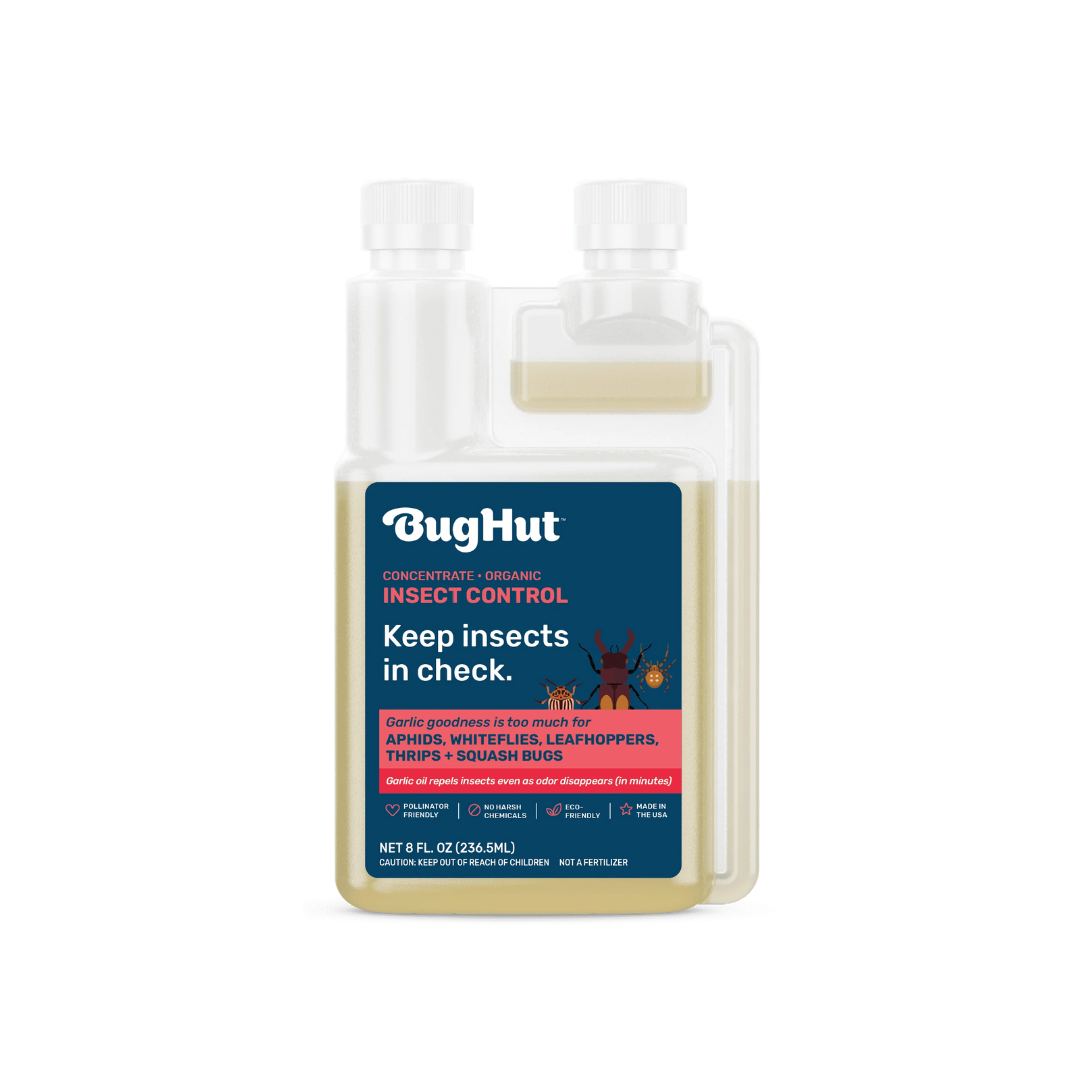BugHut Insecticide
BugHut Insecticide
8 oz Concentrate
Couldn't load pickup availability
- No Harsh Chemicals
- Eco-Friendly Formula
- Free Shipping to US 48


BugHut Insecticide is an organic concentrate that kills and repels many problematic garden pests. Made with garlic oil as the active ingredient, this natural formulation is pollinator friendly and contains no harsh chemicals.
BugHut Insecticide disrupts the feeding and reproductive cycles of many garden pests including aphids, whiteflies, leafhoppers, cabbage loopers, thrips, squash bugs, and more! The strong scent emitted by the garlic oil also works as a repellent and "antifeedant," discouraging harmful insects from damaging your plants.
BugHut Insecticide Controls:
• Aphids
• Whiteflies
• Leafhoppers
• Spider Mites
• Cabbage Loopers
• Other Caterpillars
• Thrips
• Squash Bugs
• Mosquitos
• Fungus Gnats
BugHut Insecticide Mixing Rates:
Each 8 oz BugHut Insecticide bottle includes a convenient measuring chamber with 1/4 ounce and 1/2 ounce measurement lines. Shake the bottle throughly, then open the cap on the measurement chamber and squeeze the bottle to fill the chamber.
When using a pump sprayer, mix 1 ounce of BugHut Insecticide per gallon of water. When using a spray bottle for smaller applications, mix 1/4 ounce of BugHut Insecticide per 32 ounces of water. Spray the mixed solution onto your plants so that the entire plant is coated.
Apply every 7-10 days for best results. Although BugHut insecticide is not particularly harmful for pollinators, it is best to apply late in the evenings when pollinator activity is reduced.

The Power of Garlic Oil
As the active ingredient in BugHut Insecticide, garlic oil emits a strong odor that repels many garden pests. Insects such as aphids, cabbage loopers, spider mites, and whiteflies are often deterred by the scent of garlic oil, which makes it less likely for them to feed on plants.
Garlic oil contains sulfur compounds which can disrupt the feeding and reproductive cycles of certain pests. This can prevent infestations from becoming established and reduce damage to plants over time. It also acts as an "antifeedant," meaning it discourages pests from feeding on treated plant tissue.
Similar to thyme oil, garlic oil also possesses antimicrobial properties due to compounds like allicin. This can help control fungal and bacterial diseases in the garden, indirectly protecting plants from pests that are attracted to weakened or diseased foliage.


